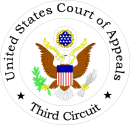In a blow to debt collection attorneys, the Third Circuit ruled that a letter sent by a foreclosure attorney to the mortgagee’s attorney could form the basis of a violation under 15 U.S.C. 1692f(1) of the Fair Debt Collection Practices Act. In addition, the debt collection attorney is not shielded by New Jersey’s common-law litigation privilege. The decision, Allen v. LaSalle, is available here: Allen v LaSalle Bank.
In response to a request from the debtor’s attorney, the debt collection attorney sent a payoff letter which allegedly sought to collect fees and charges not permitted by New Jersey law. The plaintiff alleged the demand for payment of these fees and charges was not expressly authorized by the agreement creating the debt or authorized by law, thereby violating §1692(f)(1). The Court of Appeals reversed the District Court’s dismissal of the claim noting that the payoff letter was an “indirect” communication to the plaintiff. The issue of whether the letter actually violated §1692f(1) was remanded to the District Court.
The decision aligns the Third Circuit with the Fourth which, in Sayyed v. Wolpoff, also held that communications between attorneys could be a basis for an FDCPA claim. The Ninth Circuit held that such communications are not actionable in Guerrero v. RJM Acquisitions, LLC. The Seventh Circuit in Evory v. RJM Acquisitions Funding, LLC previously held the communications actionable if they would deceive a “competent attorney,” which was the analysis used by the District Court in Allen.
Several decisions from District Courts within the Third Circuit have adopted Guerrero, dismissing claims founded upon communications with a debtor’s counsel. Allen does not address these earlier lower court decisions.
New Jersey’s common law litigation privilege was found to bar an FDCPA claim in Ogbin v. Fein, Such, et al., a May 2009 unpublished decision from the District of New Jersey. That case, involving both the same plaintiff’s attorney and law firm defendant, is on appeal to the Third Circuit. It would appear the appeal has become moot in light of the Allen decision.


